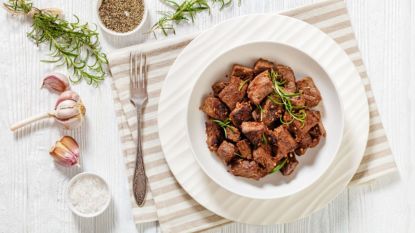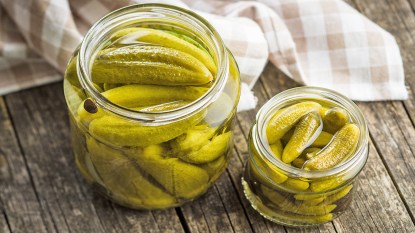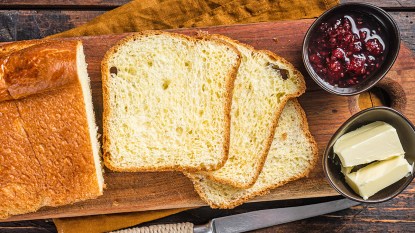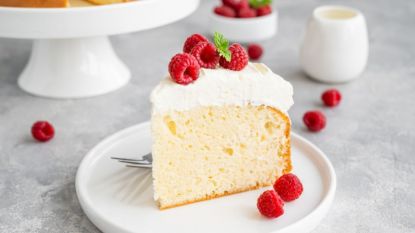Deflate Inflammation, Boost Heart Health, and Soothe Menopause Symptoms With This Antioxidant-Rich Veggie
This unique veggie packs a hefty nutritional punch.
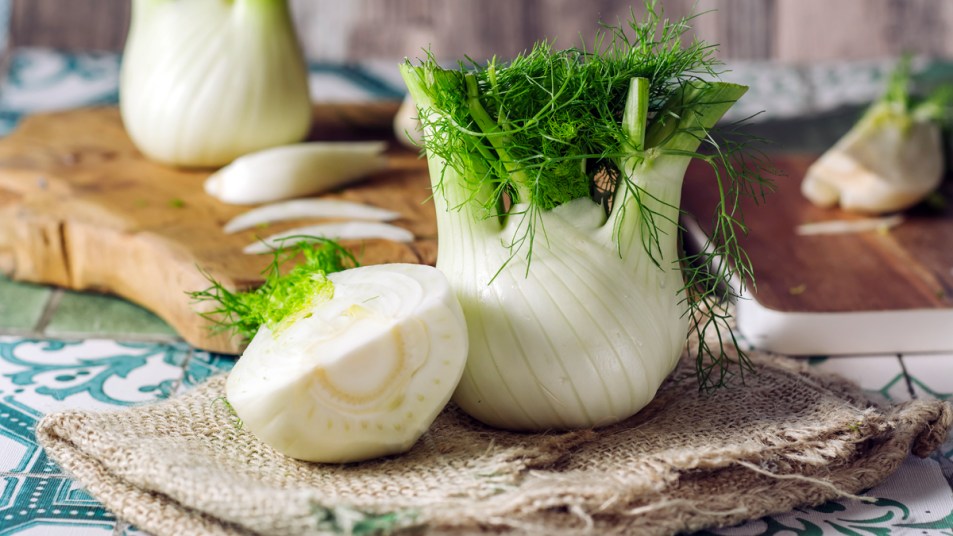
You might not recognize fennel just by looking at it — the bulb vegetable seems like a spring onion and a leek had a baby that also somehow inherited the wispy branches of dill leaves — but if you come across one at your grocery store, you should definitely consider adding the nutrient-packed ingredient to your cart.
Let’s start by taking a look at the nutritional info: One cup of fennel contains about 27 calories, 7 grams of carbohydrates, 3 grams of fiber, and even a gram or two of protein. There’s also roughly 12 percent of the daily recommended intake of vitamin C and dashes of minerals like manganese, iron, potassium, and magnesium.
Not too shabby already, but the really impressive part of these vegetables comes from their super-antioxidant rich plant compounds. A study from 2014 examined the essential oil extracted from fennel and found 87 antioxidants, including polyphenols that act as anti-inflammatory agents that ward off things like cancer, heart disease, neurological degeneration, and type 2 diabetes.
The high fiber content in fennel has also been shown to help specifically with keeping cardiac issues at bay. One cup will give you nearly half the amount of fiber experts recommend for lowering cholesterol and overall risk of heart disease.
Even more good news: According to the results of a scholarly article published in 2018 that reviewed several studies around fennel’s effect on menopause, women who were given fennel supplements showed improvement in a range of symptoms, including vaginal dryness, sexual function and satisfaction, and sleep thanks to the phytoestrogen (plant-based hormones that act like the estrogen in our bodies) found in all parts of fennel.
Now that you know all of the ways adding more of this veg to your meals can boost your health, you’re probably wondering how it actually tastes. The entire plant is edible — bulb, stalks, and leaves — but fennel has a reputation for having a licorice-like flavor. You shouldn’t be afraid of it overpowering your meals, though. Heating it up will tame that down a bit while still leaving a distinctly unique element to your dish. Add it to a pan full of roasted veggies or, if you’re a fan of the stronger flavor, simply slice it up raw to mix in with a salad.
Experiment with it yourself and you just might get hooked!


